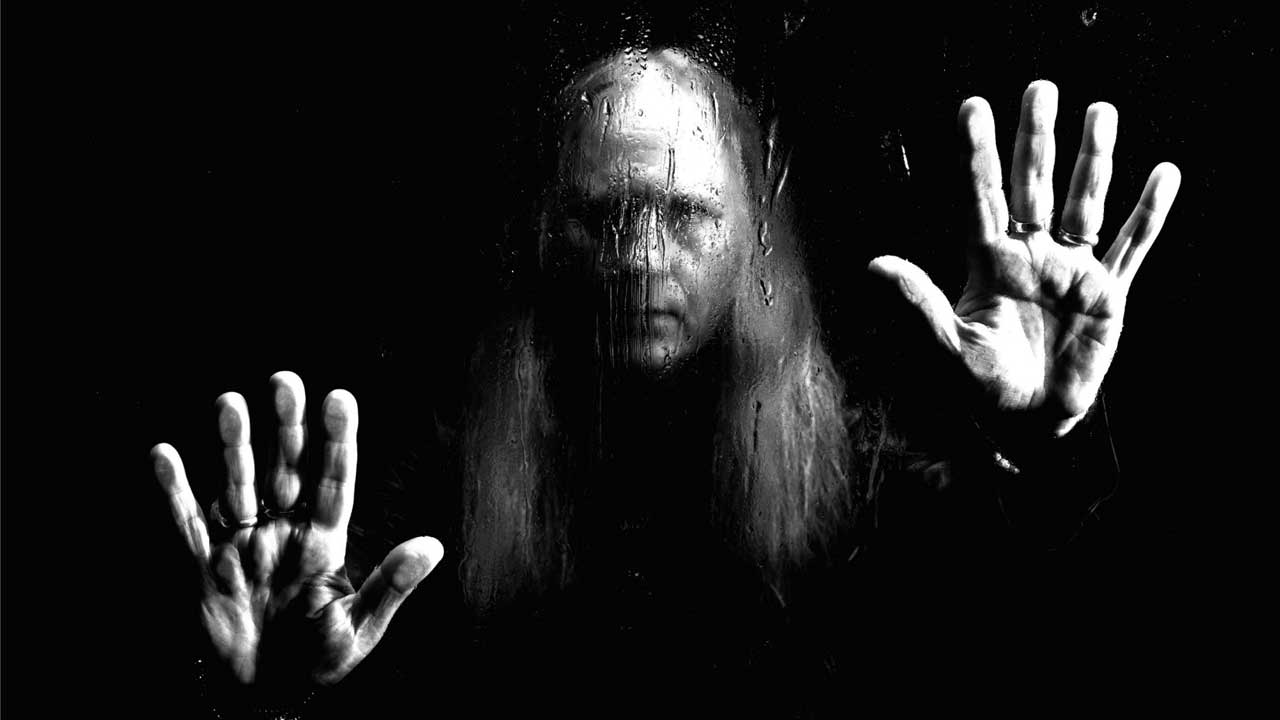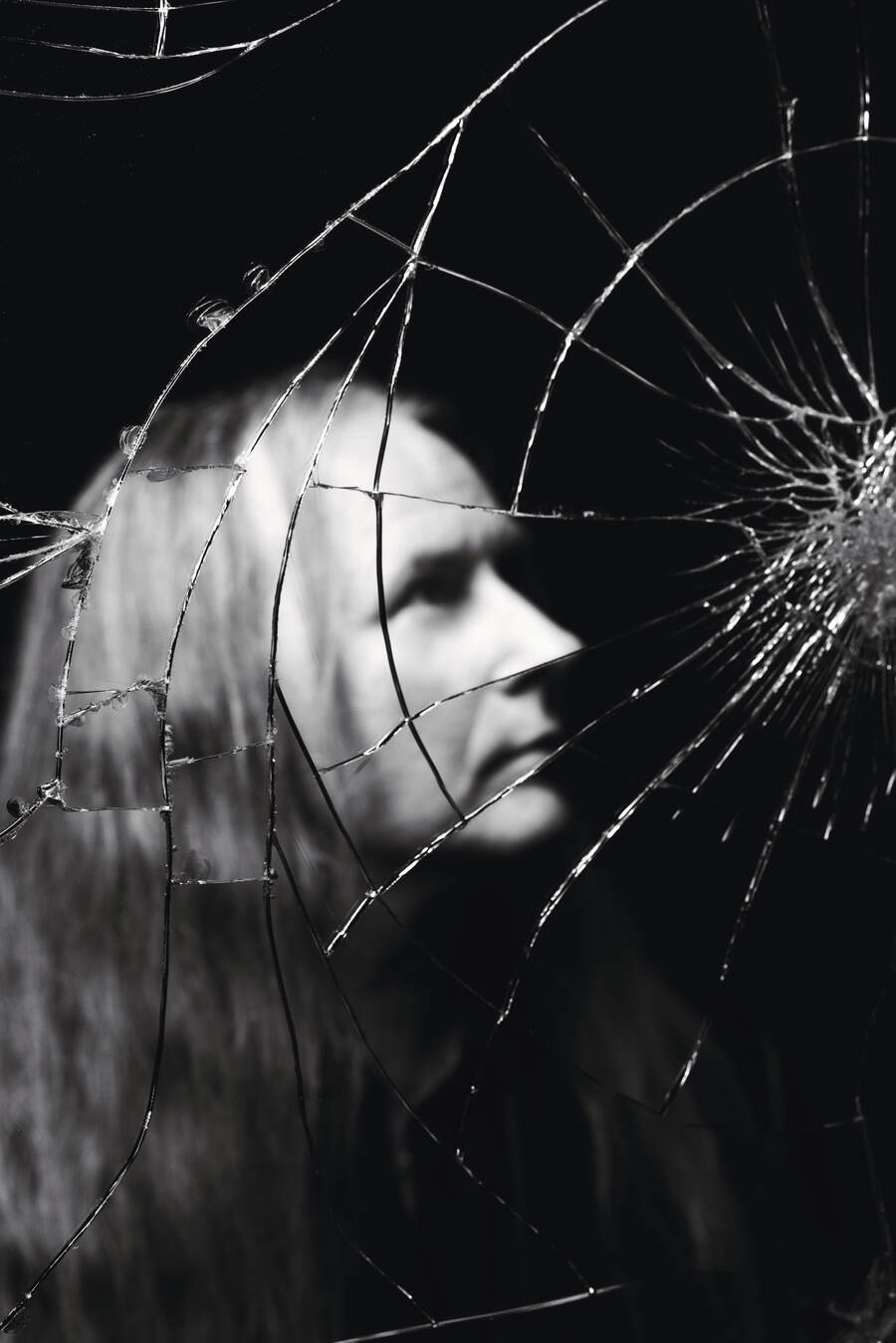
Jerry Cantrell’s new solo album, I Want Blood, has an impressive cast of contributing guest musicians - Guns N’ Roses bassist Duff McKagan, Metallica bassist Robert Trujillo and Faith No More drummer Mike Bordin among them - but from the moment you hear the driving riffs and eerie harmonies of opening track and lead-off single Vilified it could be only be the work of Alice In Chains’ redoubtable leader Cantrell.
Pre-release, we caught up with the 58-year-old during the opening week of his summer tour with Bush, and found the grunge veteran “pumped and ready to go".

I Want Blood takes its title from the most aggressive song on the record, which seems like a statement of intent. What does the title track mean to you?
The title is very potent, so I get that reaction. To me, the whole record has a lot of weight to it, and I’m still taking it in myself. You can take that title a lot of ways, like ‘I want to fight’ or ‘I want to kill’, but it’s not really about that. I’ll leave it open to interpretation, but to me it’s kind of a celebration, an embrace of life, and the feeling of being alive, wanting to experience all you can.
There’s a punk-rock energy to that track. People know that you grew up on Zeppelin and Sabbath and Pink Floyd, but did punk mean much to you as a kid?
I was always more aligned with hard rock, metal and classic rock, but yeah, I like a lot of punk too, the energy of that, and the rawness, and I think there’s elements of that in my music as well. But you’re right, that’s about as clear a strike on that bell as I’ve made in a while. It never hurts when you’ve got Duff McKagan playing bass to set that tone.
You mentioned Duff McKagan. You two have been playing on one another’s records for more than thirty years now, since you guested on Believe In Me, his first solo record, back in 1993. How did you first meet?
I think we met in LA, and I ended up over at his house one night. He’s a Seattle dude, and he’s been a fixture on the local music scene for ever. I was a big fan of Guns N’ Roses, and it had to be the late eighties/early nineties when we met, and we’ve been buddies ever since.
Duff mentioned earlier this year that you’re considering the possibility of the two of you doing a record together. Is that still a possibility?
Hey, man, any time Duff calls, I’m there. And any time I call, he’s there for me. So yeah, I would absolutely love to do that.

It’s been six years since the last Alice In Chains record, and only three years since Brighten, your last solo record, so before embarking on I Want Blood did you have to check with your bandmates and see whether they’re okay to lose you for another eighteen months or whatever?
Well, most of my life has been dedicated to Alice, and it’s an honour to be a part of that group, and that friendship, and collective. I did Brighten in a window where we didn’t really have anything planned. Then of course covid kept that window open for longer than anyone expected. I had so much fun doing that record, and I hadn’t done a solo album in twenty years, so I thought I’d do another one, real quick. You have to follow your gut, and that’s what my gut was telling me to do. And here we are.
On the record, you’ve got a great selection of guest players, who presumably are good friends too. Did you have specific people in mind for each song before you went into the studio?
I kind of like to let things take an organic flow, and I don’t really do a lot of planning. I just get in motion, put a few calls out, and see what happens. With Robert Trujillo and Mike Bordin, they played on my second solo album, Degradation Trip, but we hadn’t played together in a long time and I thought it’d be fun to do a couple of tunes again with those guys. Everyone on the record is a great musician, and I know they’re going to bring it musically, which obviously pushes me too.
I’ve spoken to a lot of songwriters over the years, and they talk about how there’s always an element of pulling your heart out of your ribcage each time you write a song, and present it for others. Is there still a part of you that’s cautious or nervous about what other musicians will think when you show them a new song?
I mean, I’m a human being, so of course there are always fears and doubts lurking, because you’re opening yourself up in a completely raw way. With Alice we never pulled any punches. Our ethos was always to be right in your face, bold and honest, and that’s how I always approach songs. I’m not gonna act like doubt doesn’t affect me, because the creative process is weird, but I think I’ve built up some competence too over the years, and some trust in my own abilities. Before I was a musician I was fan of rock’n’roll, and that kid’s still alive in there. So if that kid’s satisfied, then I’m good.
Do you find lyric writing more challenging then riff writing?
For me the words are always the hardest part of writing a song. On occasion you’ll get a good one that just flows out, but the majority of the time it’s more like dropping a block of marble in front of yourself and sitting there with a chisel and a hammer, and it takes a while to take shape. It’s just instinct, but if you’re writing from your own point of view you can’t really go wrong.
The subject of Artificial Intelligence crops up on Vilified. There’s been a lot of talk about what the development of AI could mean for musicians, with some concerns that record labels could even start to produce music that sounds like certain artists without even involving the artist in question.
Like a record label signing AI artists?
Yeah – signing up AI In Chains.
Ha ha. It’s an interesting theme. I’m a big sci-fi fan, always have been since I was a kid, and from 2001: A Space Odyssey to Blade Runner to Terminator, that idea of the rise of machines has been around for a minute. Obviously AI’s capabilities are increasing, but it’s a tool, and as with everything else, you can use it for good or you can use it for bad. As far as, like, replacing artists, I don’t know about that, man. Music is such a human thing, and I don’t know that a machine can capture feeling and intent yet.
What’s more dangerous, to my mind, is what’s happening right now, with algorithm bots screwing with people, influencing news and political life and getting people riled up. Humanity really seems to be at each other’s throats, and everybody’s a little too willing to round up a posse and march somebody towards a rope or to nail them to a cross. We’re all fallible, and part of life is making mistakes, and the redemption of learning from those mistakes, that’s how you grow as a person. So with that song it’s maybe a call to be a little more fucking understanding of each other.
You mentioned sci-fi films. Would getting into soundtrack work be something that might appeal to you in the future?
Well, I’ve worked on soundtracks before, both with Alice and on my own. Probably the first thing we did was the soundtrack for a horrible Arnold Schwarzenegger movie, Last Action Hero. We’re all fans of Arnold, but it turned out to be a turd of a movie – with a killer soundtrack. And Cameron Crowe asked us to be part of Singles and to write a song [Would?] for that.
I meant more like what Trent Reznor does, scoring a whole film or TV show.
I actually did some of that with Michael Kamen on Last Action Hero. But that’s a whole other talent, and it takes a lot of patience and a particular skill set. Obviously Trent does it, and Hans Zimmer, and my good friend Tyler Bates, but there’s not a lot of those guys, and you’ve got to be crazy-musical and super-patient and methodical. I don’t know that I’m that driven!
The last song on your new album, It Comes, seems to be looking back over chapters of the past, but also looking ahead with a certain sort of optimism for the future. What were you hoping for with that song?
The first word on that song is ‘ending’, and it speaks to endings in life. It’s not all gloom and doom, it’s a little celebratory too of the journey that we take. Life is finite. Right now I’m talking to you on this phone, and I’m gonna get on stage tonight and play a show, but tomorrow is promised to no one. As you go through life, people end, relationships end. But when there’s an end, there’s a new start.
And you’ve proved that with your main band. You played the Sick New World festival in Las Vegas in April with Alice, and I was recently talking to Serj Tankian from System Of A Down about that festival, and he said he was blown away seeing different generations of fans there for his band. Did you have any similar thoughts seeing the impact your music has had on people?
That’s the goal. We kind of touched earlier on the fact of how hard it is to pull this job off, or even get anybody to pay attention to you, so to keep a group together and create a repertoire and a body of work over thirty, forty years and still care about it yourself, and have people care, is pretty amazing. Like I say, that’s the goal: you want to be the Stones, you want to be Metallica, you want to be Heart, to make some music that maybe people pass down. I think we’ve achieved that with Alice, and it’s really humbling and an honour. And it’s something I’m gonna aim for too with my own music. It’s too early to see how I Want Blood will land, but yeah, that’s the dream.
I Want Blood is out now via Double J Music.







